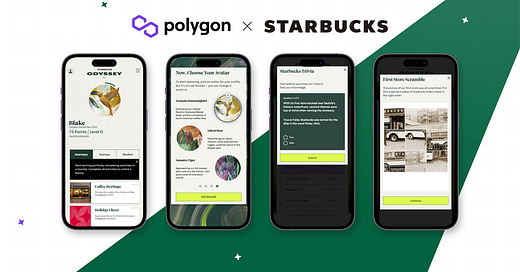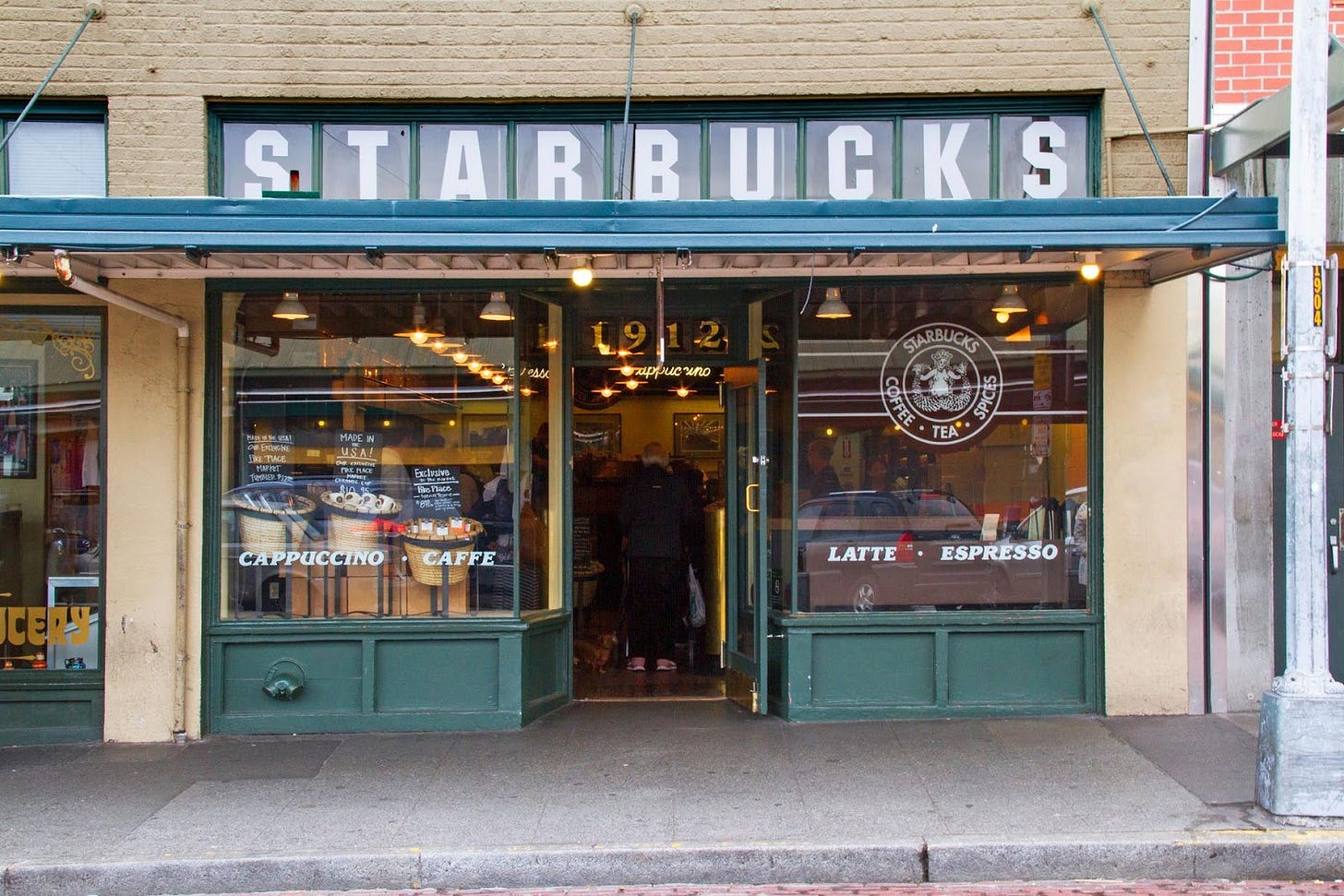Starbucks launched a beta version of its loyalty program in the U.S. as the company expands into the world of web3.
The coffee conglomerate is leveraging blockchain technology to launch a next-generation loyalty platform named 'Odyssey', which aims to create a brand relationship between customers and the coffee franchise.
Starbucks tapped Polygon, a sidechain on the Ethereum network, as its blockchain provider for the initiative, which will bring Non-Fungible Tokens (NFTs) to a more mainstream audience. As a leading infrastructure provider enabling people and technology to exchange value globally and freely, Polygon offers the ideal launchpad for Starbucks’ entry into Web3.
‘Odyssey' will enable Starbucks Rewards loyalty program members and employees to earn and purchase digital collectibles in the form of NFTs. The test run of this experiential program combines customer loyalty rewards with NFT collecting as well as other gamified elements, allowing users to engage in interactive "Journeys" or tackling challenges which are designed to offer in-depth knowledge of the Starbucks brand that earn Polygon-based NFTs dubbed "Journey Stamps.”
Additionally, users earn "Odyssey Points" that grant access to new benefits and experiences such as virtual espresso martini-making workshops, unique merchandise, artist collaborations and invitations to exclusive events at Starbucks roasteries and coffee farms.
The first stamps are an ode to Starbucks history, with NFTs inspired by its first store in Pike Place Market in Seattle along with classic designs. Every NFT will have a point value based on rarity and can be put out for tender on the Starbucks Odyssey market powered by Nifty Gateway, which will launch in 2023. Odyssey participants can purchase Stamps directly with a credit card, without the need for a crypto wallet.
This latest launch is part of a larger movement of web2 companies leveraging web3 tech to engage users. More web2 brands are starting to integrate blockchain technologies, making Web3 experiences more accessible to a mainstream audience.

Web2 brands are realizing the opportunity for a clear use case of the blockchain in the form of next-generation or experiential loyalty. Younger generations of consumers are looking for ways to interact with their beloved brands, and immersive loyalty programs such as Odyssey are helping to make this possible.
Polygon has become the go-to blockchain for major traditional companies to enter the web3 ecosystem. Apart from Starbucks, Polygon has announced partnerships with Meta, Disney, Reddit, Adidas, and many more, which highlights the immense potential and capabilities of the network, as well as its business development team.
This is one of numerous partnerships Polygon fostered this year. The network’s technical capabilities, a thriving ecosystem and the team’s commitment to sustainability made Polygon a hub for some of the most important Web3 projects, including DeFi protocols like Aave, Uniswap V3, NFT marketplaces OpenSea and Mark Cuban-founded Lazy.com.
Among the reasons why all these companies are choosing Polygon, is that it can handle plenty of transactions while keeping gas fees low. Additionally, Polygon runs using EVM which is currently the most used virtual machine on the market, and allows for composability and interoperability with other EVM networks.
These partnerships help the industry grow as it onboards more users indirectly to the platform. “The final form of blockchain is that its coding is abstracted from the user i.e. the user unknowingly is using the tech without them having to actually interact with it,” says Vish BR, strategy and operations lead at Sino Global Capital.
Moreover, these kinds of partnerships represent a win-win situation for both parties, as the company gets to their intended outcome, like engagement with their customers in a novel way, and blockchains are able to sell block space.






